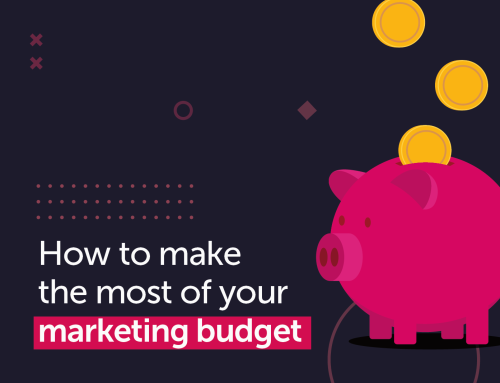According to the Centre for Economics and Business Research (CEBR), the average SME spends £24,000 on marketing a year. We’re now into the second half of 2017, and many marketing managers are reviewing their marketing plans to see if they’ve delivering what was expected at the start of the year.
Are your results as expected, better or worse? You may very well be called into a meeting (aka grilling with your CEO in the coming weeks), so it’s important to analyse your results so far and prepare yourself.
Getting the basics right
Are you able to demonstrate ROI? If you’re not, and you’re simply doing what you’ve always done, the same campaigns year-in-year-out, you need to give yourself a stern talking too! Competition is fierce in the marketing world and if you don’t up your game, you could find yourself out of a job.
As a marketing manager, you should be constantly testing and perfecting your campaigns, spending your budget wisely. What will deliver what ROI… is social media driving sales at a low cost, or are the best campaigns those that combine email marketing with direct mail? Your marketing needs to be effective and measured, you can’t simply guess. Direct mail, PR… you have lots of options but you shouldn’t spread yourself too thin.
If you own or work for a small local business, every penny counts. You need to know where your customers have come from, how much they spend and how much it costs you to get them. Compare your results to this time last year, what’s changed?
Time as well as costs need to be considered. For instance, a piece of direct mail needs to be designed/printed/delivered, and the lead time can be weeks, however an email to your database can take just a few hours to set up and send out, from start to finish. Tracking emails, texts, PPC, SEO and social media posts/campaigns, can be much easier than tracking offline methods, which can make demonstrating ROI that much easier.
Are you converting?
One of the benefits of digital marketing is the availability of all kinds of metrics to measure your marketing success. But some of these can be distracting. While hundreds of ‘likes’ on a social media update may be impressive, if those likes aren’t converting into sales it’s hard to claim any real wins.
The first step as any marketer knows is to attract prospects and get them into a marketing funnel. However, if you’re seeing poor conversion rates it could be that you’re simply not attracting the right prospects. If this is the case I suggest you review your buyer personas and see whether there is a misalignment with your marketing activities.
If attracting the prospects is not a problem but your marketing funnel is leaking really good leads, look at what opportunities you’re missing to keep them engaged. Are you pointing prospects at the right content? Many companies make the mistake of pushing prospects to their website home page from social media or email, but a specific landing page with highly targeted and relevant content for that prospect would be much more effective.

Are you a generalist?
In SMEs with limited resources it can be very challenging being a marketing manager. Business owners often have high expectations, thinking that because of the accessibility and low cost of digital marketing tools it’s easy to achieve results. However, as you know, digital marketing is complex and in many cases requires specialist skills to be effective. SEO, PPC and data management are all good examples of where specialist expertise can make a real difference – not just improving results but also saving money.
We recommend that when reviewing your marketing you also explore whether there are opportunities to be more successful by getting support. Freelancers, and agencies like Hyped, can help you do your job more effectively.










